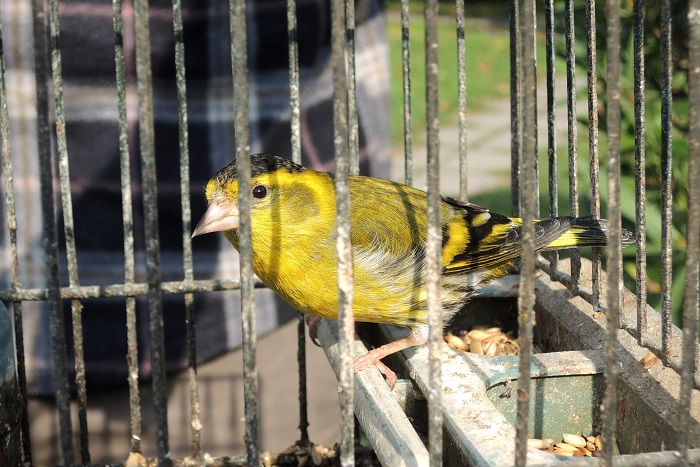Collecting wild birds

Humans have kept wild birds in cages for thousands of years. The general preference is for colourful and singing birds. In mining, birds were initially kept to be used underground as mine gas guards. This has developed into a tradition that is still firmly rooted today in the now former mining regions.
What was a rarity in historical times developed into a flourishing business after the Second World War. Native birds - mainly finches - became a popular commodity, which generated millions in sales throughout Europe via hubs in Eastern Europe, Belgium and the Netherlands. Exotic birds such as parrots were captured in the rainforests of the tropics and in the course of the economic miracle, they went from luxury articles to everyday items.
Even now, birds have a firm place in the international animal trade. After decades of campaigns by nature and animal protection associations - including CABS - the EU banned importations of wild birds in 2006. This not only regarded parrots and finches from the tropics, but also native species from Eastern Europe and Russia. The reason for the import ban was not species protection, but fear of poultry diseases. Since then, trade in parrots caught in the wild in the EU has only taken place under the counter, whilst it continues to grow outside Europe.
However, there is still a great desire for native finches in Europe. Goldfinches, bullfinches and linnets are very popular in several countries. The finch-catch is particularly widespread in Spain, Italy, on Malta, in Turkey and in Lebanon. The desired birds are shifted over the borders and employ innumerable smuggler gangs.
Many of the species are on the verge of extinction due to the animal trade. Unfortunately, the increasingly rarer species bring maximum profits. The conservation status of these species is not the only problem. The animals, captured in the wild, are packed by hundreds in small transport boxes, moved with airplanes or in a car over whole continents - most animals die in agony. Dealers are pricing-in these losses and the profit margins make it possible!
CABS works in all operational areas against the trade of illegally caught birds. Especially during our bird protection camps in Malta, Italy and Lebanon, where we report dozens of animal traders every year and dismantle trapping devices used to illegally catch wild birds for the animal market.






